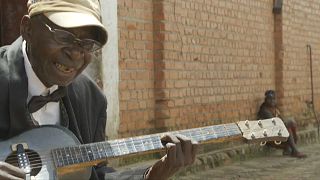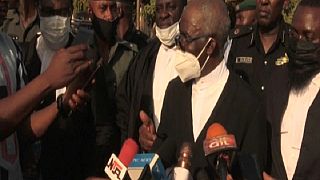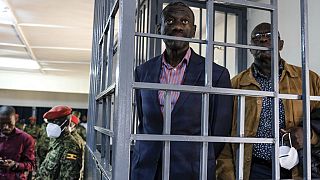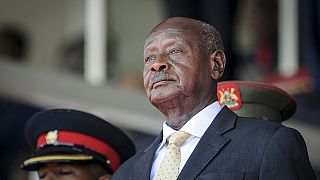Uganda
Ugandan Health Minister Jane Ruth Aceng receives a COVID-19 vaccine injection as the first person in the country's inoculation campaign. Healthcare workers have received the AstraZeneca jabs as part of a phased rollout.
Uganda launched its mass COVID-19 vaccination program on Wednesday, joining a host of countries in Africa to initiate the inoculations.
Minister of Health Jane Ruth Aceng received her jab in front of media cameras at Mulago Hospital in Kampala, confirming that the East African country would be administering the AstraZeneca vaccines.
The minister noted that Uganda aims to vaccinate at least 49.6% of its population 21,936,011 with COVID 19 vaccines in different phases.
Each phase is planned to cover 20% of the target population which is about 4,387,202 people.
The country’s vaccination drive will prioritize essential groups, starting with healthcare workers followed by teachers and those in high-risk groups, including the elderly.
The Permanent Secretary in the Ministry of Health, Diana Atwine, also received her jab at Mulago Hospital.
Upon her vaccination, she reiterated the safety of the vaccine for use by all Ugandans.
By Wednesday, Uganda had reported 40,337 confirmed COVID-19 infections with 444 deaths.
Among priority recipients of the jab will be health workers employed at public hospitals, followed by those in private-not-for-profit and their counterparts working for profit private health facilities.
Dr Alfred Driwale, the programme manager of Uganda National Expanded Programme on Immunisation (UNEPI), said national identification (ID) cards will be crucial documents to verify particulars of persons to be registered to receive the jabs.
The plan is to create a ready electronic database that can be linked to and matched with the National Identification and Registration Authority (NIRA) records to weed out outsiders.
For Ugandans without national IDs, Dr Driwale said driving permits/licences, passports, refugee cards (for refugees), work permits may be used to verify their particulars while in some cases citizens without identification documents could source and present a Local Council official or village health team member as a guarantor in order to be registered.
There will, at least for now, be no privately-administered vaccinations which the government said, among other reasons, is to prevent citizens against exploitation by unscrupulous private sector players.
At a pre-launch and media training session in Kampala yesterday, Dr Driwale said mass vaccination will prevent and reduce severe Covid-19 disease and deaths, sustain national health system response and restore health and productivity of the Ugandan societies and the economy.
Austria on Sunday suspended the use of Astra-Zeneca vaccines, the type Uganda has received from COVAX to allow investigations into the death of one person and serious illness of another after receiving the jabs, Reuters news agency reported.













01:08
Mpox: Nine most affected countries to receive vaccines
01:08
Africa reports 134 new polio cases on World Polio Day
Go to video
WHO grants first mpox vaccine approval to ramp up response to disease in Africa
01:31
WHO and Africa CDC launch response plan to the mpox outbreak
01:01
Second phase of polio immunisation drive underway in Gaza
01:28
Mpox is not the new COVID - WHO